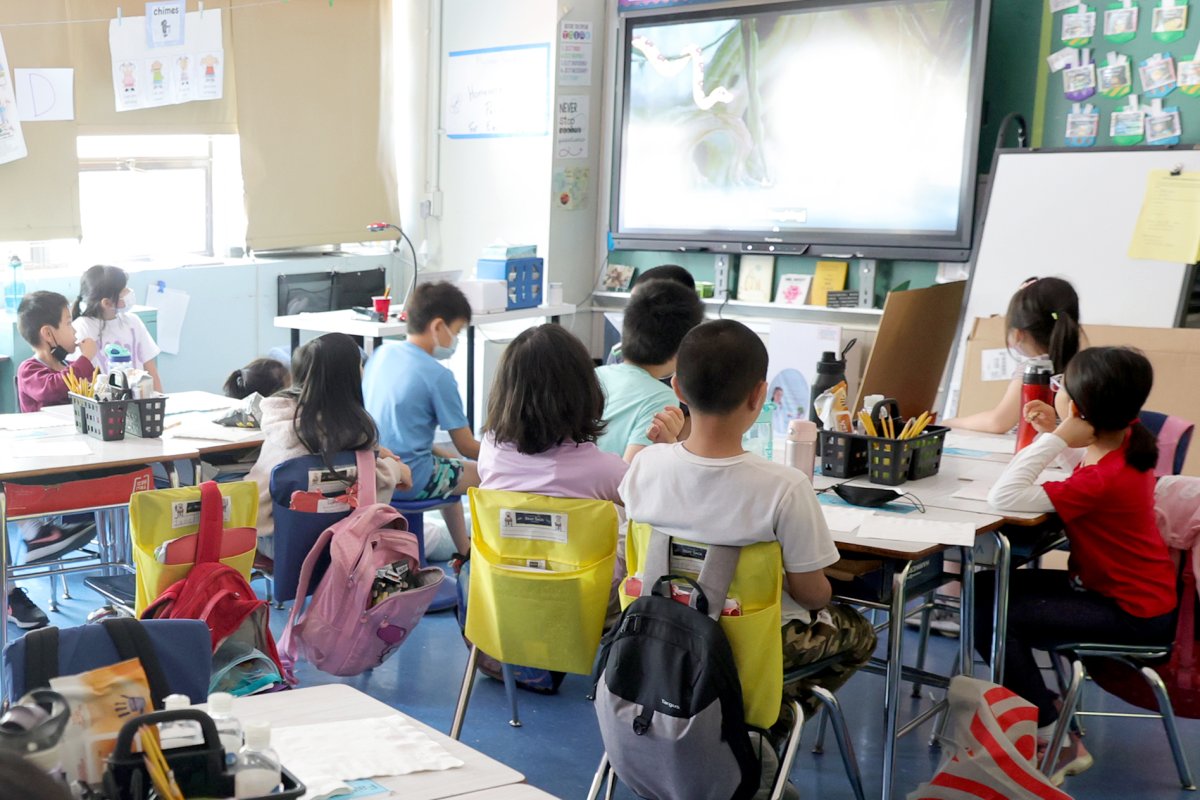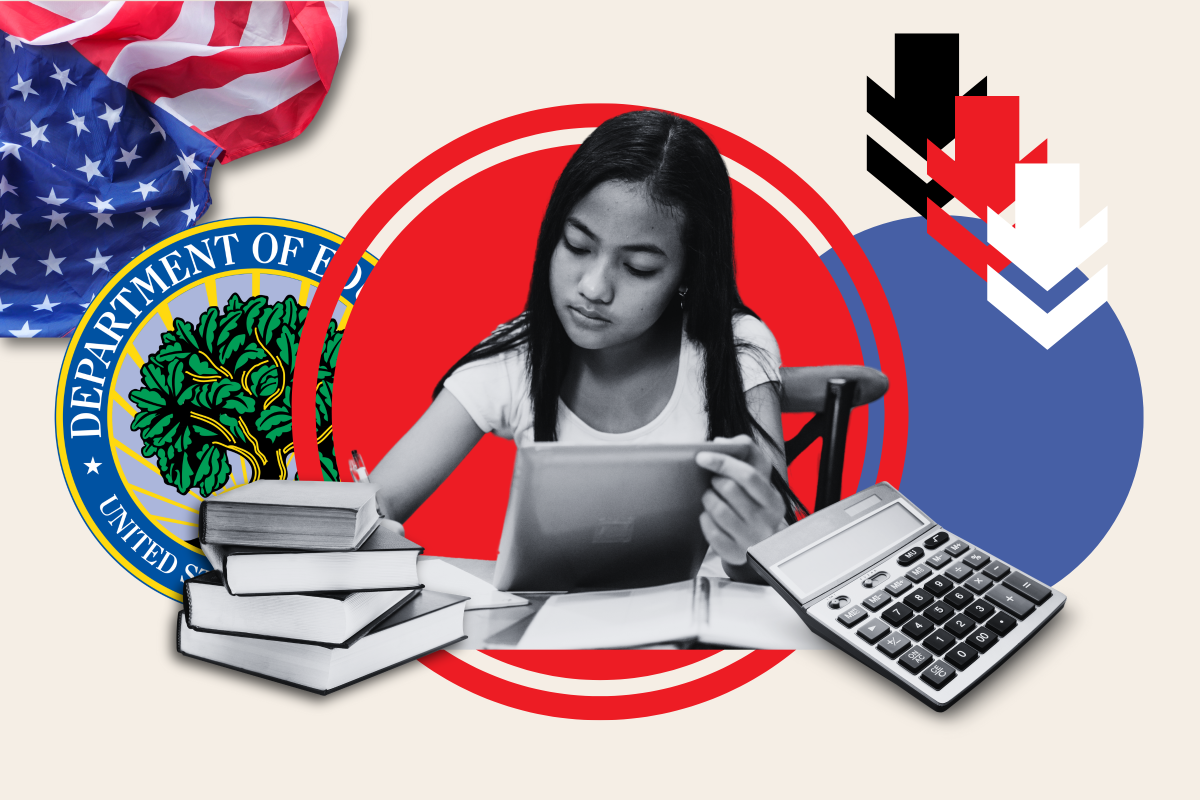Four years since school closures due to the COVID-19 pandemic upended their education, elementary and middle school students have gained back some ground.
Unfortunately, they still have a long way to go before being caught up, according to a national analysis of how students are recovering led by researchers at Harvard University and Stanford University.
Experts warn that momentum could stall when a $122 billion federal aid package that has aided the recovery expires in September, and some students may never catch up.

The researchers from Harvard and Stanford looked at test scores for third- through eighth-grade students in 8,000 school districts in 30 states during the first full year of post-pandemic recovery, between spring of 2022 and 2023. Their report, called the Education Recovery Scorecard, said that students recovered about a third of what they lost in math and just about a quarter of what they lost in reading.
Alabama was the only state to exceed pre-pandemic achievement levels in math, while only Illinois, Louisiana and Mississippi saw average achievement above pre-pandemic levels in reading.
The report said students in 17 states remain more than a third of a grade level behind 2019 levels, and those in 14 states remain more than a third of a grade level behind in reading.
"Many schools made strong gains last year, but most districts are still working hard just to reach pre-pandemic achievement levels," said Thomas J. Kane, an economist at Harvard and one of the co-authors of the analysis.
Districts across the country have invested federal pandemic relief money into programs aimed at getting students back on track academically, including intensive tutoring and summer school.
But with no sign of any more funding on the way, many school districts will end or cut back their programs in the fall.
"The idea was that four years would be enough to remedy the impacts" of the pandemic, Marguerite Roza, director of the Edunomics Lab at Georgetown University, told Newsweek.
"Thus far, the recovery has boosted test scores on average (not to where they were before), but that recovery has been uneven... But this fall, as the relief funds disappear, a major concern is that the recovery will stall."
Of particular concern is that the research found that the gap between students from rich and poor districts has only widened.
Poorer districts remain further behind their levels of achievement from five years ago than wealthier districts in all but three states: Arkansas, Pennsylvania and Virginia.

And even in the four states where average achievement exceeds pre-pandemic levels, the poorest school districts are still lagging where they were before the pandemic.
"Academic performance remains lower and more unequal than in 2019 in all but the wealthiest communities in America," said Sean Reardon, professor of poverty and inequality at Stanford's Graduate School of Education and one of the report's co-authors.
The researchers advise schools to notify the parents of children who are behind, so they have time to enroll in summer school. Polling has shown that most parents believe their children are performing at grade level despite testing showing fewer are on track.
While President Joe Biden's administration has not called for more federal funding, it has urged states to focus on increasing school attendance, as well on providing high-dosage tutoring, after-school programs and summer school. The White House has been contacted for comment via email.
Brandt Robinson, a teacher at Dunedin High School in Florida, told Newsweek there's no doubt that some of his students "have big gaps in things that they were supposed to have learned in middle school."
Robinson also said that teaching has become more challenging because of behavioral problems in students who missed out on socializing with their peers during the pandemic.
Experts say the deep learning setbacks incurred during the pandemic could affect the trajectory of students' lives if they leave school without the tools needed to succeed.
"There is an unfelt urgency because once students leave K-12 there is little chance to make up for learning losses," Eric Hanushek, an education economist and fellow at the Hoover Institution of Stanford University, told Newsweek. "Seventeen million students have already left K-12 and will be harmed over their lifetime."
Researchers have found that lower achievement in eighth grade is associated with lower lifetime earnings and higher chances of teenage motherhood and incarceration.
Students whose education was disrupted by the pandemic are estimated to lose 5 to 6 percent of lifetime earnings, Hanushek wrote in a paper co-authored with Bradley Strauss that was published in February.
Hanushek and Strauss also warned that the U.S. could end up with a less skilled workforce in the future as a result of the learning loss, leading to an estimated $31 trillion loss in GDP in today's dollars.
"Long run growth rates of economies are closely tied to the quality of their labor force," said Hanushek. "The learning losses imply that our workforce will not be as skilled as the pandemic cohort—with lower achievement and skills—works its way through. Given historical relationships between growth and labor force skills, it is possible to simulate how learning losses lower growth and thus lower future GDP."
Randi Weingarten, the president of the American Federation of Teachers, says while research shows that there has been some real progress in making up for the learning loss, more needs to be done.
"The issue is how do we help kids thrive? Because if all we're doing is getting to where we were, that's not good enough," Weingarten told Newsweek.
"We should be doing far more experiential and hands-on learning. It gets kids to come to school, kids are more interested in it, it addresses critical thinking, and kids can be more prepared for the opportunities of today and tomorrow."
The tough work of making sure students recover from the pandemic is further challenged as many states across the U.S. are grappling with teacher shortages.
Even before the pandemic, schools have struggled to recruit enough teachers in some places. The pandemic and other factors such as low pay have led to many leaving the profession, leaving many children with fewer or less qualified instructors.
Weingarten and Robinson also pointed to the difficulties that teachers are facing in some states, including Florida, where Republican lawmakers have pushed for limits on discussions of race, gender and sexuality in the classroom.
"So teachers are on eggshells, and their freedom to meet the needs of children is really curbed," Weingarten said. "Teachers need the tools, time, trust, training, and good pay."
Enrolment in teacher education programs had been on the decline well before the pandemic hit, Thomas Bailey, the president of Teachers College, Columbia University, told Newsweek.
"To really solve a teacher shortage, states need to make the investment in that," he said.
Uncommon Knowledge
Newsweek is committed to challenging conventional wisdom and finding connections in the search for common ground.
Newsweek is committed to challenging conventional wisdom and finding connections in the search for common ground.
About the writer
Khaleda Rahman is Newsweek's Senior News Reporter based in London, UK. Her focus is reporting on abortion rights, race, education, ... Read more
To read how Newsweek uses AI as a newsroom tool, Click here.






